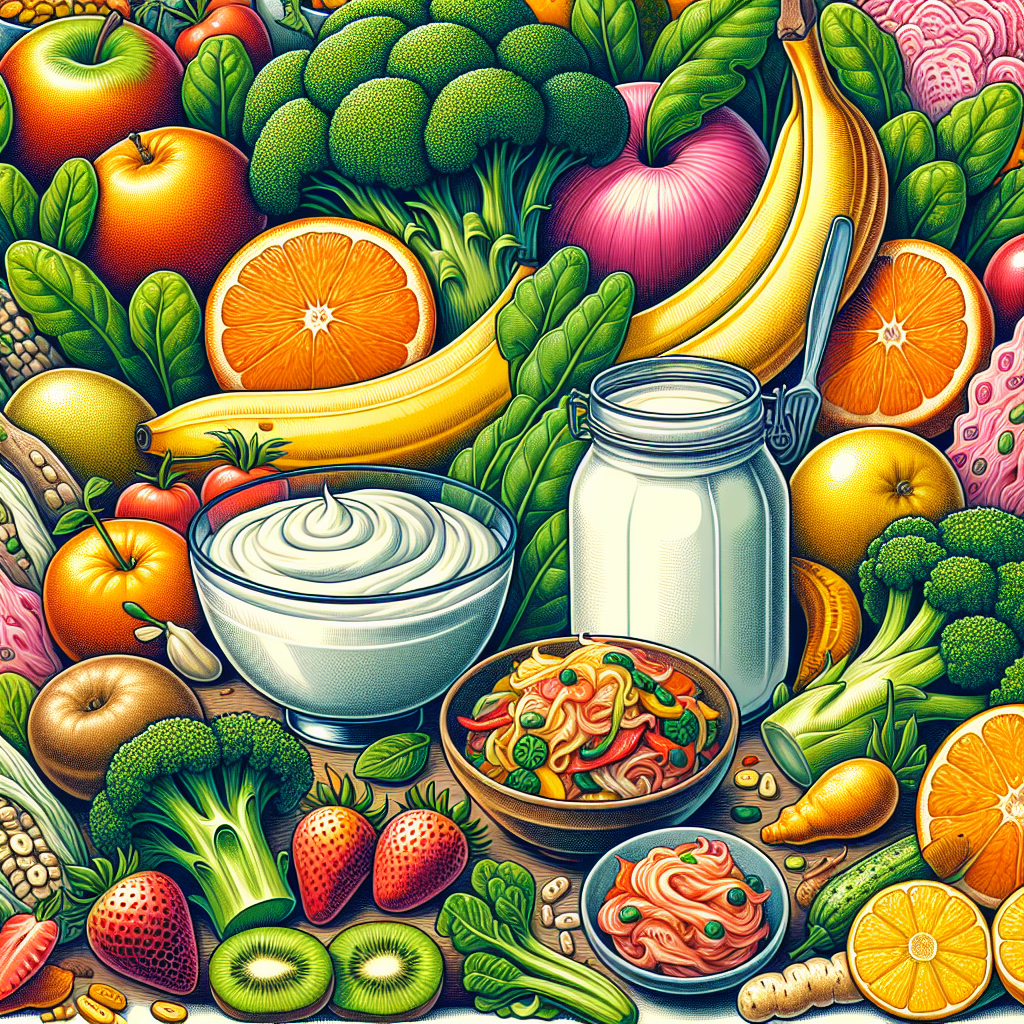The Connection Between Organic Food and Gut Health
A healthy gut is essential for overall well-being, and the foods we consume play a pivotal role in maintaining gut balance. Organic foods, rich in prebiotics and probiotics, offer a natural way to enhance digestive health. Unlike processed foods, organic options are free from synthetic pesticides and additives that can disrupt gut flora, making them an excellent choice for nurturing beneficial bacteria.
What Are Prebiotics and Probiotics?
Prebiotics are non-digestible fibers that act as food for probiotics, the live beneficial bacteria in our gut. Together, they work synergistically to improve digestion, boost immunity, and even influence mental health through the gut-brain axis. Organic foods are particularly rich in these compounds, as they are grown without harmful chemicals that could diminish their nutritional value.
Best Organic Sources of Prebiotics
Prebiotics are found in many organic fruits, vegetables, and whole grains. Including these in your diet can help promote a thriving gut microbiome.
1. Organic Garlic and Onions
Garlic and onions are excellent sources of inulin and fructooligosaccharides (FOS), two powerful prebiotics that stimulate the growth of beneficial bacteria. Organic varieties are preferred as they are grown without synthetic fertilizers, ensuring higher nutrient retention.
2. Organic Asparagus
Asparagus is packed with inulin, which supports gut bacteria like Bifidobacteria and Lactobacilli. Choosing organic asparagus minimizes exposure to pesticides that could harm gut health.
3. Organic Bananas
Slightly underripe bananas are rich in resistant starch, a prebiotic that ferments in the colon to feed healthy gut bacteria. Organic bananas ensure you avoid chemical residues commonly found on conventionally grown fruits.
4. Organic Oats
Oats contain beta-glucan, a prebiotic fiber that enhances gut bacteria diversity. Organic oats are grown without synthetic herbicides, preserving their natural benefits.
Best Organic Sources of Probiotics
Probiotics are live microorganisms that restore and maintain a healthy gut flora. Fermented organic foods are among the best sources.
1. Organic Yogurt
Organic yogurt, especially those labeled with live and active cultures, provides Lactobacillus and Bifidobacterium strains. Look for grass-fed, organic yogurt for maximum probiotic benefits.
2. Organic Kefir
Kefir is a fermented milk drink packed with diverse probiotic strains. Organic kefir ensures no antibiotics or synthetic hormones disrupt its microbial benefits.
3. Organic Sauerkraut
Unpasteurized organic sauerkraut is rich in Lactobacillus bacteria. Fermentation in organic cabbage enhances its probiotic content without chemical interference.
4. Organic Kimchi
This spicy Korean fermented vegetable dish is loaded with probiotics and antioxidants. Organic kimchi avoids synthetic additives, making it a gut-friendly choice.
How to Incorporate Prebiotics and Probiotics Into Your Diet
Balancing prebiotic and probiotic intake is key to a healthy gut. Here are simple ways to include them in your daily meals:
- Start the day with a probiotic-rich breakfast – Add organic yogurt or kefir to smoothies or granola.
- Include prebiotic vegetables in meals – Roast organic garlic, onions, or asparagus as side dishes.
- Snack on prebiotic fruits – Enjoy organic bananas or apples with nut butter.
- Use fermented foods as condiments – Add organic sauerkraut or kimchi to salads or sandwiches.
- Choose whole, organic grains – Swap refined grains for organic oats or quinoa.
The Benefits of a Gut-Healthy Organic Diet
Eating organic foods rich in prebiotics and probiotics offers multiple health benefits beyond digestion:
- Stronger Immunity: A balanced gut microbiome supports immune function.
- Better Mental Health: The gut-brain connection influences mood and cognitive function.
- Reduced Inflammation: Healthy gut bacteria help lower systemic inflammation.
- Improved Nutrient Absorption: A healthy gut enhances the uptake of vitamins and minerals.
Conclusion
Organic foods provide a natural, chemical-free way to support gut health through prebiotics and probiotics. By incorporating fermented organic foods and fiber-rich organic produce, you can cultivate a thriving gut microbiome. Prioritizing organic choices ensures you avoid harmful additives that could disrupt your digestive balance, leading to better overall health.
